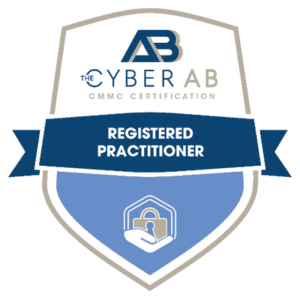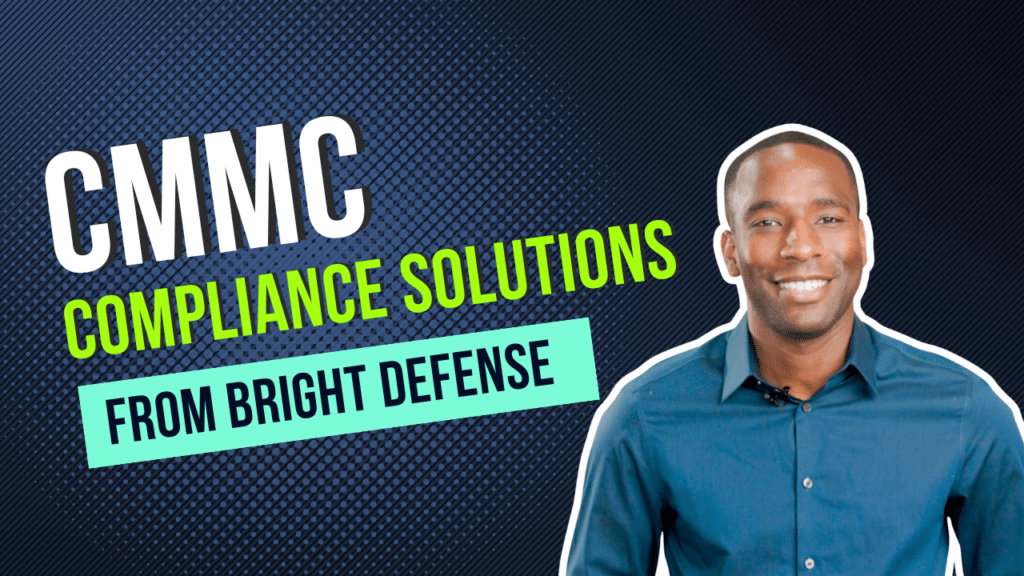
Tim Mektrakarn
February 26, 2025
Unveiling the Benefits of CMMC Certification Consulting
What is CMMC certification consulting and why is it important?
The Cybersecurity Maturity Model Certification (CMMC) is a unified cybersecurity standard that the U.S. Department of Defense (DoD) has implemented for its Defense Industrial Base (DIB). With the increasing threats to cybersecurity and the critical nature of the information handled by defense contractors, ensuring a robust cybersecurity posture has never been more crucial. This is where CMMC consulting services come into play, helping organizations understand and implement the necessary measures to protect federal contract information. Our team at Bright Defense includes Certified CMMC Professionals (CCP), who are available to guide and assist you on your journey to compliance and certification.
Before diving into the specifics of consulting services, it’s essential to understand what CMMC is. The Cybersecurity Maturity Model Certification is a framework that assesses and enhances the cybersecurity posture of the Defense Supply Chain. It comprises three maturity levels, each consisting of practices and processes, including security practices. These levels range from basic cybersecurity hygiene to advanced, and organizations must achieve certification at the required level to be eligible for specific DoD contracts and comply with the new requirements.
Read more about the importance of CMMC Readiness in our previous article.
Cyber AB and Registered Practitioners: Strengthening the Cybersecurity Landscape
The Cyber AB is a non-profit and official accreditation body of the Cybersecurity Maturity Model Certification and an authorized partner of the US Department of Defense in implementing and overseeing the CMMC program. The Cyber AB and their subsidiary CAICO are authorized to accredit CMMC Third-Party Assessment Organizations (C3PAOs) with provisional
CMMC consulting services can help businesses in implementing certain control requirements to achieve CMMC certification. This service also provides training and development in cybersecurity, as well as resources such as compliance checklists and FAQs. Certified CMMC Professionals (CCPs) and As assessors on staff, that can conduct CMMC Level 3 Assessments as well as certifying and accrediting individuals as Registered Practitioners (RPs) and organizations as Registered Provider Organizations (RPOs).
Advisory and consulting services pursue RPO or C3PAO?
Advisory and consulting services pursue C3PAO certification. C3PAO stands for Certified Third-Party Assessor Organization, and obtaining this certification demonstrates that the consulting service has met the rigorous requirements set forth by the Cybersecurity Maturity Model Certification (CMMC) program.

Registered Practitioners: The Frontline Experts
Furthermore, Registered Practitioners (RPs) are professionals who have undergone training and are familiar with the Cybersecurity Maturity Model Certification framework. They play a pivotal role in guiding organizations through the Cybersecurity Maturity Model Certification process. Their responsibilities include:
- Guidance: RPs assist organizations in understanding the CMMC requirements, helping them navigate the complexities of the framework.
- Preparation: Before undergoing a CMMC assessment, organizations must ensure they are ready. RPs assist in this preparatory phase, identifying gaps and recommending solutions.
- Documentation: Proper documentation is a cornerstone of the CMMC certification process. RPs assist organizations in creating, organizing, and reviewing necessary documentation to ensure compliance.
- Training: RPs can provide training sessions to organizations, ensuring that employees know cybersecurity best practices and the importance of adhering to them.
- Liaison: RPs often act as a bridge between organizations and C3PAOs, facilitating smooth communication and ensuring that the assessment process goes off without a hitch.
How can a company prepare for a CMMC certification assessment?
Achieving Cybersecurity Maturity Model Certification can be daunting, especially for organizations unfamiliar with the requirements or needing more internal resources to navigate the process. This is where CMMC certification consulting services come into the picture. These services offer:
- Expertise: CMMC consultants are well-versed in the intricacies of the CMMC framework. They can provide insights into the requirements of each maturity level and help organizations understand where they currently stand.
- Gap Analysis: One of the primary roles of a consultant is to conduct a thorough assessment of an organization’s current cybersecurity practices and identify gaps that need to be addressed to achieve the desired certification level.
- Tailored Solutions: Every organization is unique, and a one-size-fits-all approach won’t work. Consultants can provide tailored solutions aligning with an organization’s needs and objectives.
- Training and Awareness: Achieving and maintaining Cybersecurity Maturity Model Certification isn’t just about implementing the right technologies. It’s also about ensuring that employees know the importance of cybersecurity and are trained to follow best practices. Consultants can offer training programs to foster a culture of cybersecurity awareness.
- Continuous Monitoring and Support: The cybersecurity landscape is ever-evolving. Consultants can provide ongoing support to ensure that organizations remain compliant and are prepared to address new threats and challenges.
The roles of The Cyber AB and Registered Practitioners are indispensable. They represent the backbone of the ecosystem, ensuring that organizations not only achieve certification but also foster a culture of cybersecurity awareness and resilience. As cyber threats continue to evolve, the collaborative efforts of these entities will be crucial in safeguarding the nation’s defense infrastructure and information.
The author, Tim Mektrakarn, is a Cyber AB Registered Practitioner. Contact Us to learn more about Bright Defense’s CMMC Certification Consulting Services.
Key Components of CMMC Consulting: Ensuring Cybersecurity Maturity
In today’s digital age, cybersecurity is paramount, especially for organizations involved with the U.S. Department of Defense (DoD). The Cybersecurity Maturity Model Certification is a testament to this importance, setting a unified cybersecurity standard for the Defense Industrial Base (DIB). For organizations aiming to achieve Cybersecurity Maturity Model Certification, consulting services focused on information security and cyber security can be invaluable. Let’s delve into the key components of consulting.
Gap Analysis: Identifying Where Your Organization Stands
Before embarking on the journey to certification, it’s crucial to understand your starting point. Gap analysis serves as a diagnostic tool, assessing an organization’s current cybersecurity practices against the framework. This analysis:
- Highlights areas of strength and weakness.
- Provides a clear picture of the current cybersecurity posture.
- Sets the stage for targeted remediation efforts.
Remediation Planning: Addressing Identified Gaps
Once the gap analysis is complete, the next step is to address the identified shortcomings. Remediation planning involves:
- Prioritizing gaps based on their significance and potential impact.
- Developing a structured plan to address each gap, whether it involves implementing new technologies, revising processes, or enhancing security protocols.
- Setting clear timelines and milestones to track progress.
Documentation and Policy Creation
A robust cybersecurity posture isn’t just about having the right technologies in place; it’s also about having clear policies and documentation. CMMC certification consulting services assist organizations in:
- Drafting clear, comprehensive, and compliant cybersecurity policies.
- Creating documentation that outlines processes, responsibilities, and protocols.
- Ensuring that all documentation aligns with the framework requirements and standards.
Training and Awareness Programs for Employees
Cybersecurity is a collective responsibility. Even the most advanced security systems can be compromised if employees aren’t aware of best practices. CMMC consultants emphasize:
- Developing tailored training programs that cater to different roles within the organization.
- Raising awareness about the latest cybersecurity threats and trends.
- Ensuring that employees understand the importance of their role in maintaining cybersecurity.
Mock Audits and Readiness Assessments
Before undergoing the official CMMC assessment, it’s wise to test the waters with mock audits and readiness assessments. These mock evaluations:
- Simulate the actual CMMC assessment process, giving organizations a taste of what to expect.
- Identify any last-minute gaps or issues that might have been overlooked.
- Provide an opportunity for organizations to refine their processes and address any concerns before the official audit.
Achieving certification is a rigorous process, but with the right guidance, it’s a feasible goal. The key components of CMMC certification consulting, from gap analysis to mock audits and readiness assessments, ensure that organizations are well-prepared to meet the stringent cybersecurity standards set by the DoD for dod suppliers. By partnering with a reputable CMMC consultant, organizations can navigate the certification process with confidence, utilizing options such as cloud services and managed services to ease the resource burden and ensuring that they are well-equipped to protect critical information and uphold the trust of the defense community.

Choosing the Right CMMC Consultant: Navigating the Cybersecurity Maze
Factors to Consider:
- Experience: In the world of cybersecurity, experience is paramount. A seasoned consultant will have a deep understanding of the intricacies of the certification process, having guided multiple organizations through it. Their hands-on experience will provide insights that can’t be gleaned from textbooks alone.
- Accreditation: The consultant should be a Registered Practitioner (RP) or work for a Registered Practitioner Organization (RPO). This shows that they have passed the required training and have an expert understanding of the requirements.
- Client Testimonials: A consultant’s past work speaks volumes. Client testimonials offer a glimpse into the consultant’s capabilities, professionalism, and the quality of their service. Positive feedback from reputable organizations can be a strong indicator of the consultant’s competence.
- Industry Knowledge: The defense industry has its unique challenges and nuances. A consultant with specific knowledge of this industry will be better equipped to address its specific security needs and regulatory requirements.
Red Flags to Watch Out For:
- One-size-fits-all Approach: Every organization is unique, and a standardized approach won’t cut it. Be wary of consultants who offer generic solutions without thoroughly assessing your organization’s specific needs.
- Lack of Transparency: A reputable consultant will be transparent about their methods, tools, and processes. If a consultant is evasive or unwilling to share details, it’s a potential red flag.
- Overpromising: Achieving certification is a rigorous process. Be cautious of consultants who promise quick fixes or guarantee certification without a comprehensive assessment.

Overlapping Frameworks: NIST 800-171, SOC2, and CMMC Certification Consulting
Several frameworks guide organizations in establishing and maintaining robust security postures. Two such prominent frameworks are NIST SP 800-171 and SOC2. While each has its distinct focus and application, there are areas of overlap, especially when viewed in the context of CMMC certification consulting.
NIST SP 800-171
NIST SP 800-171 primarily addresses the protection of Controlled Unclassified Information (CUI) in non-federal systems and organizations. It provides a set of requirements that organizations must meet to ensure the confidentiality and integrity of CUI. Many requirements, such as access control, incident response, and system monitoring, are foundational cybersecurity practices.
On the other hand, SOC2 is a framework that focuses on controls at a service organization relevant to a system’s security, availability, processing integrity, confidentiality, or privacy. While it’s broader in scope and not specific to the defense industry, many of its principles align with those of NIST 800-171, including the requirement to register self-assessments and affirmations in the Supplier Performance Risk System (SPRS).
CMMC
Regarding Cybersecurity Maturity Model Certification consulting, understanding the overlaps between NIST 800-171 and SOC2 becomes crucial. CMMC, designed for the Defense Industrial Base (DIB), encompasses practices from NIST 800-171 and expands upon them, including specific security controls at the advanced level. Therefore, organizations already aligned with NIST 800-171 or have undergone SOC2 audits may have an advantage. They might already have many of the required controls, making the journey to CMMC certification smoother.
However, it’s essential to note that while there are overlaps, each framework has unique elements. CMMC certification consulting can help organizations identify these nuances, ensuring they not only leverage existing controls from NIST 800-171 or SOC 2 but also address any gaps specific to the framework.
The interconnectedness of NIST 800-171, SOC 2, and CMMC compliance standards highlights the broader trend in cybersecurity: a move towards standardized, comprehensive, and rigorous practices. Organizations that recognize these overlaps and work with knowledgeable consultants can navigate the complexities of compliance more efficiently, ensuring they meet the stringent cybersecurity standards set by government agencies and regulatory bodies.
Conclusion
Finally, the path to achieving certification can be complex, but organizations can navigate it successfully with the right guidance and support. CMMC certification consulting services play a pivotal role in this journey, offering the expertise and resources needed to ensure that defense contractors are well-equipped to protect critical information and maintain the trust of the DoD. Whether you’re just starting your journey or looking to enhance your cybersecurity posture, partnering with a reputable consultant can make all the difference.

As a Cyber AB Registered Practitioner (RP), Bright Defense offers CMMC Consulting Services. Chat with our consultants today!
Get In Touch



